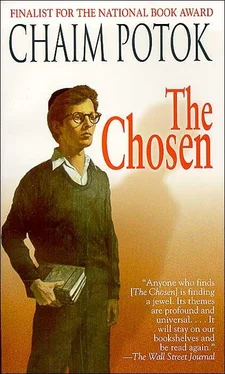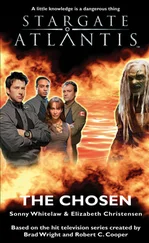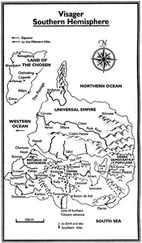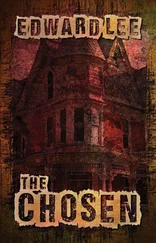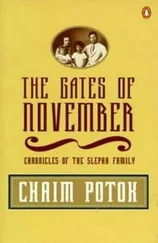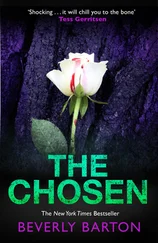On a day in the second week of June, the same week the United Nations truce went into effect and the fighting in Israel ceased, the entire school attended an assembly in memory of the student. Everyone was there, every rabbi, student, and college teacher. One of his Talmud teachers described his devoutness and dedication to Judaism, his mathematics professor talked about his brilliance as a student, and one of the members of the senior class told of the way he had always spoken of going to Israel. Then we all stood as a prayer was chanted and the Kaddish was said.
Reb Saunders' anti-Zionist league died that day as far as the students in Hirsch College were concerned. It remained alive outside the school, but I never again saw an anti-Zionist leaflet inside the school building.
The final examinations were not too much of a problem to me that semester, and I made all A's. July came and brought sweltering heat, and the happy announcement from Dr Grossman that my father was now well enough to be able to go to the cottage in August and resume teaching in September. But he was to rest in the cottage, not work. Yes, he could write – since when was writing work? My father laughed at that, the first time he had laughed in months.
In September, my father resumed his teaching, and I entered my third year of college. Since symbolic logic was part of philosophy, I had chosen philosophy as my major subject, and I was finding it very exciting. The weeks passed quickly. My father was doing nothing but teaching for the first few months; then, with the approval of Dr Grossman, he went back to some of his Zionist activities and to teaching an adult class one night a week.
The war in Israel continued sporadically, especially in the Negev. But the initiative had passed to the Israelis, and the tension was gone from it by now.
Reb Saunders' anti-Zionist league seemed to have gone out of existence. I heard nothing about it, even in my own neighborhood. And one day in the late spring of that year, while I was eating lunch, Danny came over to my table, smiled hesitantly, sat down, and asked me to give him a hand with his experimental psychology; he was having difficulty setting up a graph for a formula involving variables.
I felt a little shiver hearing his voice.
'Welcome back to the land of the living,' I said, staring up at him and feeling my heart turn over. It had been over two years now that we hadn't talked to each other.
He smiled faintly and rubbed his beard, which was quite thick.
He was wearing his usual dark suit, tieless shirt, fringes, and skullcap. His earlocks hung down along the sides of his sculptured face, and his eyes were bright and very blue.
'The ban has been lifted,' he said simply.
'It feels good to be kosher again,' I told him, not without some bitterness in my voice.
He blinked his eyes and tried another smile. 'I'm sorry,' he said quietly.
'I'm sorry, too. I needed you around for a while. Especially when my father was sick.'
He nodded, and his eyes were sad.
'How do you do it?' I asked.
He blinked again. 'Do what?'
'How do you take the silence?'
He didn't say anything. But his face tightened.
'I hated it,' I told him. 'How do you take it?'
He pulled nervously at an earlock, his eyes dark and brooding.
'I think I would lose my mind,' I said.
'No you wouldn't,' he said softly. 'You'd learn to live with it.'
'Why does he do it?'
The hand pulling at the earlock dropped down to the table.
He shook his head slowly. 'I don't know. We still don't talk.'
'Except when you study Talmud or he explodes.'
He nodded soberly.
'I hate to tell you what I think of your father.'
'He's a great man,' Danny said evenly. 'He must have a reason.'
'I think it's crazy and sadistic,' I said bitterly. 'And I don't like your father at all.'
'You're entitled to your opinion,' Danny said softly. 'And I'm entitled to mine.'
We were silent for a moment.
'You've lost weight,' I told him.
He nodded but remained silent. He sat there slumped over, looking small and uncomfortable, like a bird in pain.
'How are your eyes?' I asked.
He shrugged. 'They bother me sometimes. The doctor says it's nervous tension.'
There was another silence.
'It's good to have you back,' I said. And I grinned.
He smiled hesitantly, his blue eyes bright and shining.
'You and your crazy way of hitting a baseball,' I said. 'You and your father with his crazy silences and explosions.'
He smiled again, deeply now, and straightening up in the chair. 'Will you help me with this graph?' he asked.
I told him it was about time he helped himself with graphs, and then showed him what to do.
When I told my father about it that night, he nodded soberly.
He had expected it, he said. The Jewish state was not an issue anymore but a fact. How long would Reb Saunders have continued his ban over a dead issue?
'How is Danny feeling?' he wanted to know.
I told him Danny didn't looke well and had lost a lot of weight. He was thoughtful for a moment. Then he said, 'Reuven, the silence between Danny and Reb Saunders. It is continuing?'
'Yes.'
His face was sad. 'A father can bring up a child any way he wishes,' he said softly. 'What a price to pay for a soul.'
When I asked him what he meant, he wouldn't say anything more about it. But his eyes were dark.
So Danny and I resumed our old habits of meeting in front of my, synagogue, of riding to school together, eating lunch together, and going home together. Rav Gershenson's class became a particular joy, because the ease between Danny and myself now permitted us to engage in a constant flow of competitive discussion that virtually monopolized the hours of the shiur. We dominated the class to such an extent that one day, after a particularly heated Talmudic battle between Danny and me that had gone on uninterrupted for almost a quarter of an hour, Ray Gershenson stopped us and pointed out that this wasn't a private lesson he was giving; there were twelve other students in the class – didn't anyone else have something to say? But he said it with a warm smile, and Danny and I were delighted by his oblique compliment.
A few days after we had resumed talking, Danny told me that he had resigned himself to experimental psychology and was even beginning to enjoy it. 'When he talked about psychology now, he invariably used the technical language of the experimentalist: variables, constants, manipulation, observation, recording of data, testing hypotheses, and the advantages of attempting to refute hypotheses as against confirming them. Mathematics no longer seemed to be much of a problem to him. Only rarely now did he need my help.
We were sitting in the lunchroom one day when he told me of a conversation he had had with Professor Appleman. 'He said if I ever wanted to make any kind of valuable contribution to psychology I would have to use scientific method. The Freudian approach doesn't really provide a method of accepting or rejecting hypotheses, and that's no way to acquire knowledge: 'Well, well.' I grinned. 'Good-bye Freud: He shook his head. 'No. It's not good-bye Freud. Freud was a genius. But he was too circumspect in his findings. I want to know a lot more than just the things Freud dealt with. Freud never really did anything with perception, for example. Or with learning. How people see, hear, touch, smell, taste, and learn is a fascinating subject. Freud never went into any of that. But he was a genius, all right, in what he did go into.'
'You're going to become an experimentalist?'
'I don't think so. I want to work with people, not with rats and mazes. I talked to Appleman about it. He suggested I go into clinical psychology.'
Читать дальше
